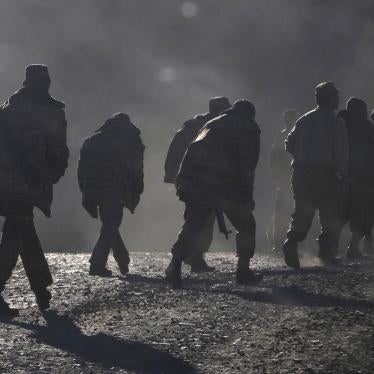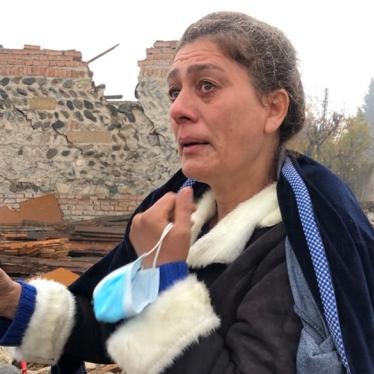“We Try to Stay Invisible”
Azerbaijan's Escalating Crackdown on Critics and Civil Society

The Azerbaijani government remains hostile to dissenting voices, targeting government critics and political opponents with dubious charges, undermining its stated commitments to reforms. In previous years, the authorities released numerous activists imprisoned on politically motivated and bogus charges, but dozens of others remain wrongfully imprisoned. Restrictive laws continue to impede nongovernmental organizations (NGOs) from operating independently. Other persistent human rights problems include systemic torture and ill-treatment in custody and restrictions on media freedoms. Domestic violence against women is also a serious problem, and the government has yet to ratify or even sign the Council of Europe Convention on Preventing and Combating Violence against Women and Domestic Violence (the Istanbul Convention).
While the European Union has signed a deal with Azerbaijan aimed at increasing the country’s gas exports to Europe, it failed to set conditions for future cooperation that will help secure rights improvements.

Azerbaijan's Escalating Crackdown on Critics and Civil Society



Investigate Indiscriminate Attacks, Use of Explosive Weapons in Populated Areas


Crackdown on Dissent, Civil Society in Azerbaijan

Authorities Should Free Abzas Media Journalists and Scholar Bahruz Samadov

Ulviyya Ali Faces Bogus Smuggling Charges

Reopened Investigation Threatens to Wipe Out Independent Activism

Free Tofig Yagublu, Other Unjustly Imprisoned Activists
Authorities Should Drop Bogus Charges and Release Unjustly Jailed Reporters

